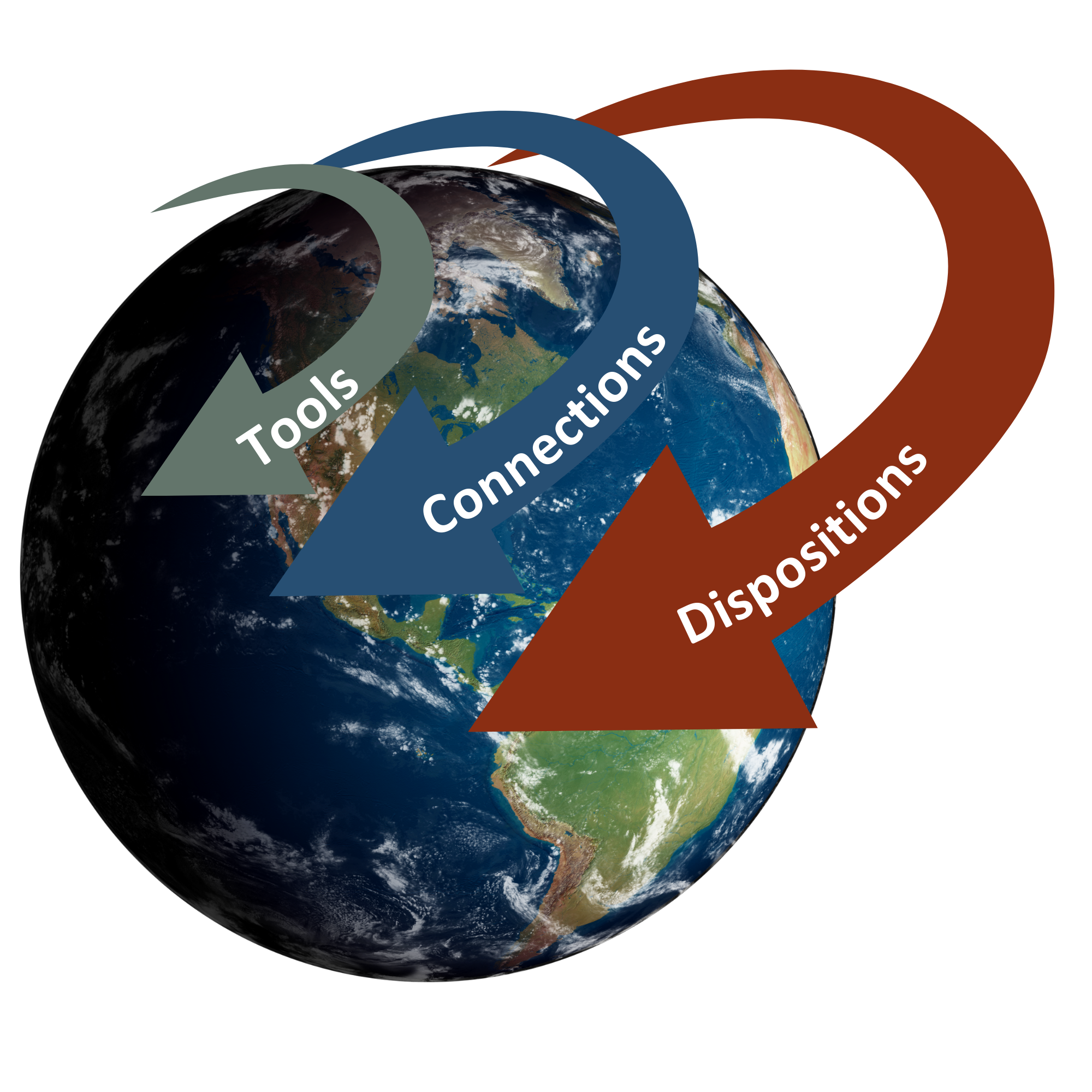

The Maine Department of Education Numeracy Hub is a dynamic, evolving space to support meaningful, relevant numeracy learning across all ages and contexts. The Hub offers clear, actionable resources that support educators, leaders, families, and partners across the public education system.
"Numeracy is more than performing calculations - it is the ability to make meaning of the world through mathematical thinking. Numeracy empowers all learners to reason, solve problems, and make informed decisions to interact and engage with the world."
The Maine State Numeracy Action Plan is Maine's statewide approach to advancing numeracy for all learners. Grounded in the belief that numeracy is essential for lifelong learning, educational equity, and thriving society, this initiative provides guidance, tools, and resources to support high-quality, culturally responsive numeracy instruction across all grade levels. Explore Maine's State Numeracy Action Plan to inform your practice, strengthen collaboration, and drive meaningful numeracy growth in your community.
The Maine Department of Education (DOE) is seeking feedback from educators, school leaders, and partners across the field on the draft Numeracy Playbook. This playbook is designed to support schools and school administrative units (SAUs) in strengthening numeracy instruction and systems in alignment with Maine’s State Numeracy Action Plan, and your perspective is essential to making it as clear, useful, and practical as possible.
Because the playbook is a large, comprehensive document, the feedback survey is structured so that you do not need to review the entire playbook to participate. We invite you to provide feedback on the sections most relevant to your role, experience, and context.
The feedback window will remain open through the week of February 23. Broad field input will help ensure the playbook reflects the realities, strengths, and needs of numeracy work happening across Maine.
We also want to be clear about how your feedback will be used. To ensure we thoughtfully process and synthesize input, our team will review feedback in two-week cycles. This approach allows us to look for patterns, themes, and areas of alignment across responses, rather than reacting to individual comments in isolation.
While we may not be able to incorporate every individual suggestion, all feedback will be read, considered, and used to inform our revision decisions as we work toward a final, field-informed version of the playbook.
Your input will help us improve clarity and usability across sections, ensure the guidance and tools are grounded in the realities of Maine classrooms and schools, and strengthen alignment with evidence-based numeracy practices and statewide priorities.
We know your time is valuable, and we deeply appreciate your willingness to share your insights. This playbook is intended to be a practical, supportive resource for the field, and your feedback plays a critical role in shaping its final form.
Thank you for the important work you do every day to support Maine learners.

The Architecture of Numeracy
Strong, versatile problem solvers are the key to a bright future. Discover how integrated and foundational numeracy skills lay the groundwork for lifelong learning and success!
Early and Foundational Numeracy
Early Learning Foundational Skills
Young brains are wired for numeracy! Discover how early interactions and instruction from parents & caregivers build strong numeracy foundations!
Numeracy as Equity and Access
Inclusive Practices
- Multi-Tiered System of Supports (MTTS)
In Maine, MTSS is defined as a comprehensive framework designed to address each student's academic, behavioral, and social-emotional needs in the most inclusive and equitable learning environment. - Multilingual Learners
Support for multilingual learners is a shared responsibility, and we’re here to help connect you with the right team and resources.
Supports for Learners: Dyscalculia
Dyscalculia is a specific learning disability with an impairment in mathematics, which can affect calculations, problem solving, or both. It is characterized by difficulties with number sense, memorization of basic math facts, and accurate and fluent calculation.
- What is Dyscalculia? Learning Disabilities Association of America
- How to Spot Dyscalculia by Rae Jacobson (Child Mind Institute)
- Shining a Light on Dyscalculia by Dawn Pagliaro-Newmand (Edutopia)

Numeracy in Action
See how you can use numeracy to make a difference!
- MOOSE Numeracy Progression
The modules in this Learning Progression were designed by Maine educators to support numeracy engagement and development across the PreK-12 span. Students are invited to explore meaningful projects that address questions and concerns that are relevant in their daily lives. - Maine Pathways
Maine Pathway reform bolsters success and completion for students across the country. This approach prioritizes equal access to high-quality math experiences aligned to a student's chosen program of study. - Math Pathways - Supporting Student Decision-Making
Math pathways work at the secondary level supports every student to learn rigorous, engaging, and relevant mathematics that will facilitate their future academic and career pursuits.
Resources & Professional Learning

Resources
Explore the available resources to support your understanding and work with supporting numeracy.
Articles
- Numeracy Across the Curriculum
Download a PDF copy of this article to learn more about how schools and teachers can use frameworks and models for classroom implementation across grade levels and content areas. - A Nation of Problem-solvers: How State Leaders Can Help Every Student Achieve in Math
Want to impact change in mathematics instruction? Learn about 6 recommendations, based on research, for state leaders to take action to offer a meaningful and lasting pathway for improvements for all students.
Maine Supports & Organizations
- Maine State STEAM Hub
This hub is a place for educators, leaders, and partners to explore how STEAM connects core learning to real-world applications and helps all Maine learners grow as critical thinkers, makers, and innovators. - Association of Teachers of Mathematics in Maine (ATOMIM)
The Association of Teachers of Mathematics in Maine is a professional organization whose mission is to promote and support improved student learning of mathematics. Membership is free. - Maine Mathematics and Science Alliance (MMSA)
The Maine Mathematics and Science Alliance advances STEM education by supporting educators with high-quality professional development and leading-edge research to help engage students and build the critical skills needed to thrive in tomorrow's world.
Other States and Organizations
- West Virginia math4life
Explore resources for administrators, educators, and parents and families that support numeracy. - WIDA - Scaffolding Learning for Multilingual Students in Math
This WIDA Focus Bulletin provides examples of specific macro-scaffolding and micro-scaffolding practices in action in a math classroom and includes guidance for developing these scaffolding practices over time. - Massachusetts Family Guides
These guides to the Massachusetts learning standards help families understand what students are expected to know and be able to do by the end of each grade in English Language Arts and literacy, mathematics, science and technology/engineering, and history and social science. Designed to help families and teachers work together to support learning, the guides are available in English, Spanish, Brazilian Portuguese, and Simplified Chinese.

Professional Learning
Engage in available professional learning opportunities to support your understanding and work with supporting numeracy.
Leadership
- Transformational Leaders' Network
The Maine Department of Education (Maine DOE) invites school principals to register for a year-long professional learning experience. The Transformational Leaders’ Network (TLN) offers principals an opportunity to deepen their leadership skills and network with fellow principals across Maine. This dynamic learner-centered program has a rich history of success and is open to ALL Maine principals.
Asynchronous Professional Learning Module
- Executive Function Skills Supporting Literacy & Numeracy module explores the key strategies that support the development of three executive function skills, Planning, Organization, and Cognitive Flexibility, through the literacy and numeracy lenses.
A strong mathematics education depends upon a clear understanding of its interrelated concepts, skills and practices to ensure students are on the pathway to success in their academic careers. The knowledge and skills students need to be prepared for mathematics in college, career, and life are woven throughout the K-12 mathematics standards.
Standards & Standards Review
- Standards, Review, & Assessment
- Math Diagnostic Screeners
- Maine Learning Results
Assessment
Important Dates for Fall 2025 Administration:
| Date | Task |
| September 2, 2025 | Acacia management platform opens for pre-administration activities. |
| September 2 – October 10, 2025 | District and School Assessment Coordinators complete the annual Maine Through Year Assessment Coordinator training module by following the auto enrollment process. |
| September 15 – October 24, 2025 | Fall 2025 administration window |
| October 10, 2025 | Last day to submit paper-based assessment form requests, including standard print, large print, and braille via the request form. |
| October 17, 2025 @ 4:00 PM | Last day to request an assessment reset. |
| October 23, 2025 @ 8:00 PM | Last daily change assessment roster file is generated based on student information entered into Synergy. Any student demographic updates made in Synergy after this date/time will not appear in Acacia. |
| October 24, 2025 | Last day to roster students in MAP for the transfer of RIT scores from Acacia to MAP Growth reports |
| October 27 - 31, 2025 | SAU data cleanup window: Checklist of Data Cleanup Tasks |
| November 14, 2025 | Last day to run Operational Reports (other than the Student Score Data File) for the fall 2025 administration |
| December 3, 2025 | Student Score Data File becomes available in Acacia. |
Contact
Michele Mailhot
Interdisciplinary Instruction Specialist
Phone: 207-557-5134
Email: michele.r.mailhot@maine.gov